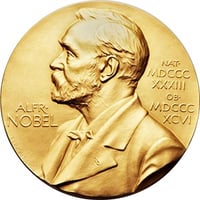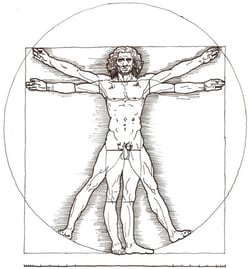 I had anticipated that 2022's Nobel Prize might go to something more contemporary, like the RNA-based vaccine technology or even the malaria vaccine, but as is sometimes the case with the Nobel committee, this year they threw us a pleasantly surprising curveball with the prize in Physiology or Medicine. With this award, the Nobel Prize definitely awards someone who gave the greatest benefit to humankind indeed as the recognition was for discoveries that look into the very origins of humanity!
I had anticipated that 2022's Nobel Prize might go to something more contemporary, like the RNA-based vaccine technology or even the malaria vaccine, but as is sometimes the case with the Nobel committee, this year they threw us a pleasantly surprising curveball with the prize in Physiology or Medicine. With this award, the Nobel Prize definitely awards someone who gave the greatest benefit to humankind indeed as the recognition was for discoveries that look into the very origins of humanity!
The 2022 Nobel Prize in Physiology or Medicine

This October, the Nobel committee formally recognized the field of paleogenomics, or the genetic study of ancient and extinct species, as the pioneering work of Svante Pääbo opened our eyes and clarified some answers to the fundamental question of where we humans came from. It is now generally accepted that the first hominids evolved in Africa relatively recently about a few million years ago, and the modern human, Homo sapiens, came out of Africa some 300,000 years ago before they migrated across the planet. Our closest human relatives, Neanderthals, also developed around the same time, although they went extinct about 30,000 years ago while the modern human form we know persisted.
The work of Dr. Pääbo provided genetic evidence of interbreeding between Neanderthals and Homo sapiens, which suggested that these two human populations interacted with each other during their overlap. The key finding was in a hominin known as Denisova, which had a very well-preserved DNA sample that Pääbo and his group were able to sequence. From this discovery, they were able to develop new theories of how gene flow occurred and new insights into human evolutionary history.
While the Neanderthals have long been extinct, paloegenomic evidence shows that at least some of their genes live on within our current genomes, and if nothing else, provides lasting evidence that we are all related and have a common origin story that can be traced (if scientists can ever find the proper genetic samples, many of which are likely lost to the sands of time). The Nobel Prize is very consistent in their appreciation of work that truly represents the greatest benefit to humanity, and in this case, we have yet another discovery that helps us understand who we are, and that we are not so different after all. Perhaps this will inspire current and future generations to practice more inclusivity and accessibility in science and other aspects of society!
Hearty congratulations to Dr. Pääbo for this honor, and you can read more from the Nobel Prize press release and the scientific summary of his work. We will be back later on this week to celebrate the coming announcements of the Physics and Chemistry Prizes, as well as the prizes in the humanities.



